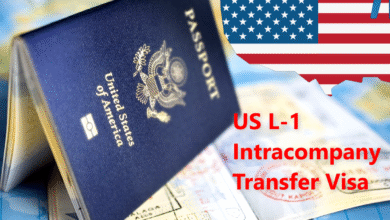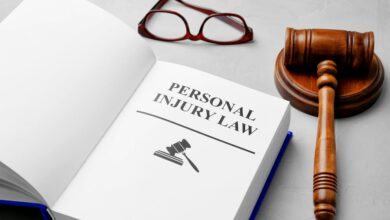Essential Guide to Hire Personal Injury Lawyer in Australia

In Australia, a personal injury lawyer plays a crucial role in assisting individuals who have suffered harm or injury due to the negligence or wrongful actions of others. These lawyers specialize in handling a wide range of personal injury cases, including car accidents, workplace accidents, medical malpractice, and slip and fall incidents. Personal injury lawyers provide essential support to their clients by offering legal advice, conducting investigations, gathering evidence, negotiating with insurance companies, and representing them in court if necessary. Their primary goal is to help injured individuals obtain the compensation they deserve for their injuries, including medical expenses, lost wages, pain and suffering, and other damages. By enlisting the services of skilled and experienced National Compensation Lawyers, individuals can navigate the complexities of the legal system and work towards achieving a fair and favorable outcome for their case.
Read More: The Benefits of Hiring a Family Lawyer in Australia
What Does a Personal Injury Lawyer Do?
Many individuals explore the internet in search of information on the topic of “what does a personal injury lawyer do?” to guarantee that they pick the appropriate individual for their case. When there are so many various types of attorneys to choose from, it can be difficult to determine if you are searching for a personal injury attorney or one who specializes in a different area altogether.
Assistance to those who have suffered either physical or emotional damage is the primary function of personal injury attorneys. They will fight for your right to collect compensation and be of assistance in circumstances involving deliberate torts and carelessness.
Personal injury lawyers will also assist with a broad range of incidents, such as:
- Car accidents
- Truck accidents
- Motorbike accidents
- Bicycle accidents
- Medical malpractice
- Wrongful deaths
- Workplace injury
How Does the Personal Injury Claim Process Work?
In Australia, the personal injury claim process typically involves several steps:
- Consultation with a Lawyer: The process often begins with an initial consultation with a personal injury lawyer. During this meeting, the lawyer will assess the details of your case, including the circumstances of the injury, the extent of damages suffered, and the potential liability of the responsible party.
- Investigation and Evidence Gathering: Once you retain a lawyer, they will conduct a thorough investigation into the incident to gather evidence supporting your claim. This may involve obtaining medical records, witness statements, accident reports, and other relevant documentation.
- Assessment of Damages: Your lawyer will evaluate the extent of your damages, including medical expenses, lost wages, rehabilitation costs, pain and suffering, and other losses. This assessment helps determine the appropriate amount of compensation to pursue in your claim.
- Negotiation with Insurers: In many cases, personal injury claims are settled through negotiation with the insurance company representing the at-fault party. Your lawyer will present your claim and negotiate on your behalf to reach a fair settlement agreement.
- Filing a Lawsuit (if necessary): If a settlement cannot be reached through negotiation, your lawyer may advise you to file a lawsuit in court. This initiates formal legal proceedings, and the case may proceed to trial if a settlement is still not reached during the litigation process.
- Discovery and Pretrial Proceedings: If your case goes to court, both parties will engage in a process known as discovery, during which they exchange relevant information and evidence. Pretrial proceedings, such as motions and hearings, may also take place to resolve legal issues before trial.
- Trial: If your case proceeds to trial, it will be heard before a judge or jury, who will evaluate the evidence presented by both sides and make a decision on the outcome of the case.
- Appeals (if necessary): Following a trial, either party may have the right to appeal the court’s decision if they believe legal errors were made during the proceedings. The appellate court will review the case and determine whether to uphold or overturn the lower court’s decision.
Throughout the personal injury claim process, your lawyer will provide guidance and advocacy to help protect your rights and pursue the compensation you deserve for your injuries and losses.
How Do I Choose the Best Personal Injury Lawyer?
Choosing the best personal injury lawyer in Australia is an important decision that can greatly impact the outcome of your case. Here are some key factors to consider when selecting a personal injury lawyer:
- Experience: Look for a lawyer with extensive experience handling personal injury cases, particularly those similar to yours. An experienced lawyer will have the knowledge and skills necessary to effectively navigate the complexities of personal injury law and advocate for your rights.
- Specialization: Choose a lawyer who specializes specifically in personal injury law. Specialization ensures that the lawyer has in-depth knowledge of relevant laws, procedures, and strategies for maximizing compensation in personal injury cases.
- Reputation: Research the lawyer’s reputation within the legal community and among past clients. Look for reviews, testimonials, and references to gauge the lawyer’s track record of success, professionalism, and client satisfaction.
- Communication Skills: Communication is key in any legal case. Select a lawyer who communicates effectively and keeps you informed about the progress of your case. They should be responsive to your inquiries and address any concerns you may have promptly.
- Empathy and Compassion: Personal injury cases often involve individuals who have suffered physical, emotional, and financial hardships. Choose a lawyer who demonstrates empathy, compassion, and a genuine concern for your well-being.
- Resources and Support Staff: Consider the resources and support staff available to the lawyer and their firm. A well-equipped legal team can provide valuable assistance in investigating your case, gathering evidence, and preparing for negotiations or trial.
- Fee Structure: Clarify the lawyer’s fee structure upfront to ensure transparency and avoid any surprises. Many personal injury lawyers work on a contingency fee basis, meaning they only collect a fee if they secure compensation for you. Make sure you understand the terms of the fee arrangement before proceeding.
- Accessibility: Ensure that the lawyer is accessible and responsive to your needs throughout the duration of your case. You should feel comfortable contacting them with questions or concerns, and they should prioritize your case accordingly.
- Initial Consultation: Take advantage of the initial consultation offered by many personal injury lawyers. This meeting allows you to discuss your case, ask questions, and evaluate whether the lawyer is the right fit for you before making a commitment.
- Compatibility: Finally, trust your instincts and choose a lawyer with whom you feel comfortable and confident. A strong attorney-client relationship built on trust and mutual respect is essential for a successful legal representation.
By carefully considering these factors and conducting thorough research, you can choose the best personal injury lawyer in Australia to represent you and advocate for your interests effectively.
Read More: Essential Guide to Employment Redundancy Rights in Australia
Conclusion
Exercising patience and doing due diligence is the way to go while in the quest to hire a good personal injury lawyer in Australia. There are many things to consider before hiring them and following this handy guide will get you there. You can also consider National Compensation Lawyers, a family law firm that has many reputable personal injury lawyers in Australia and does not hesitate to contact them when you contemplate divorce.











